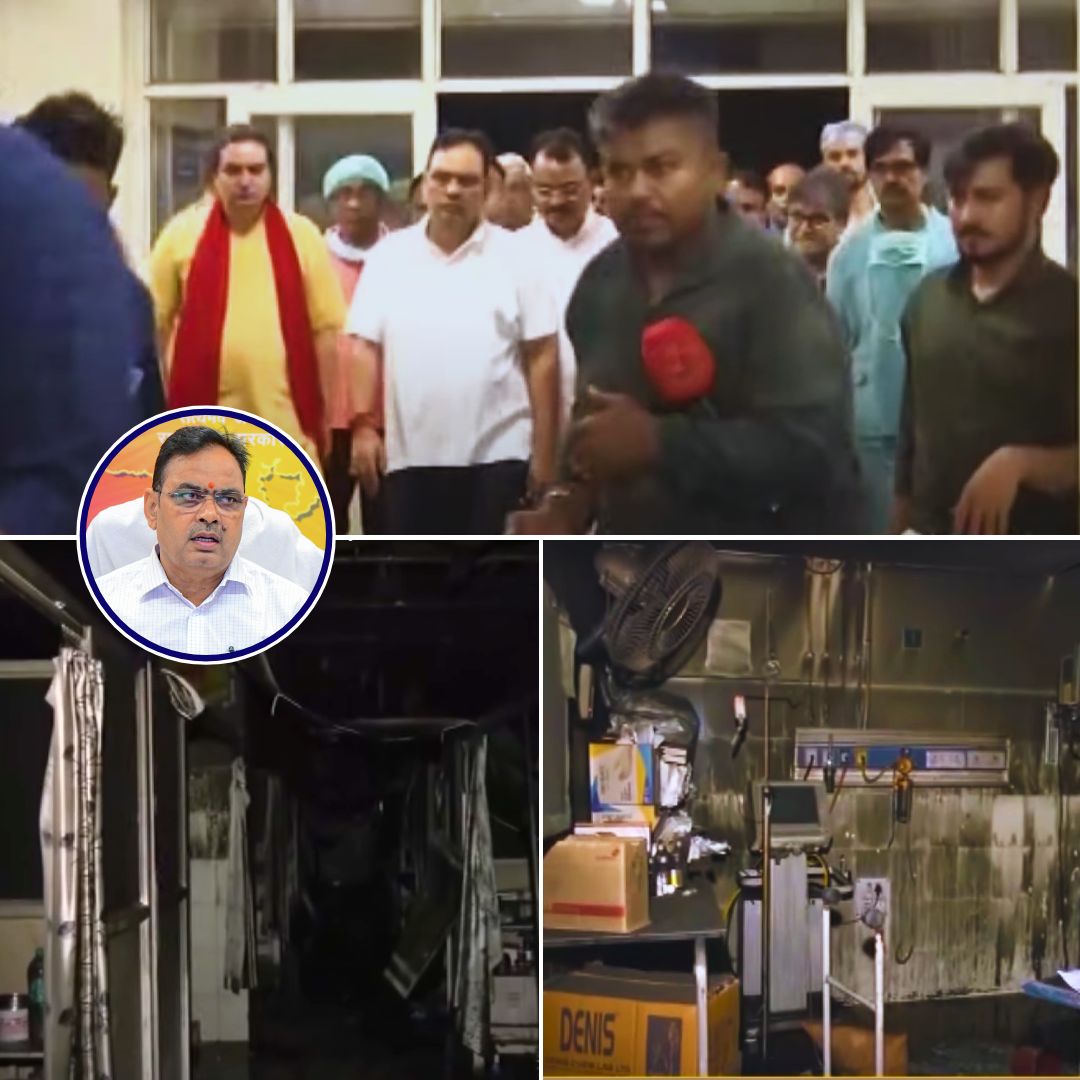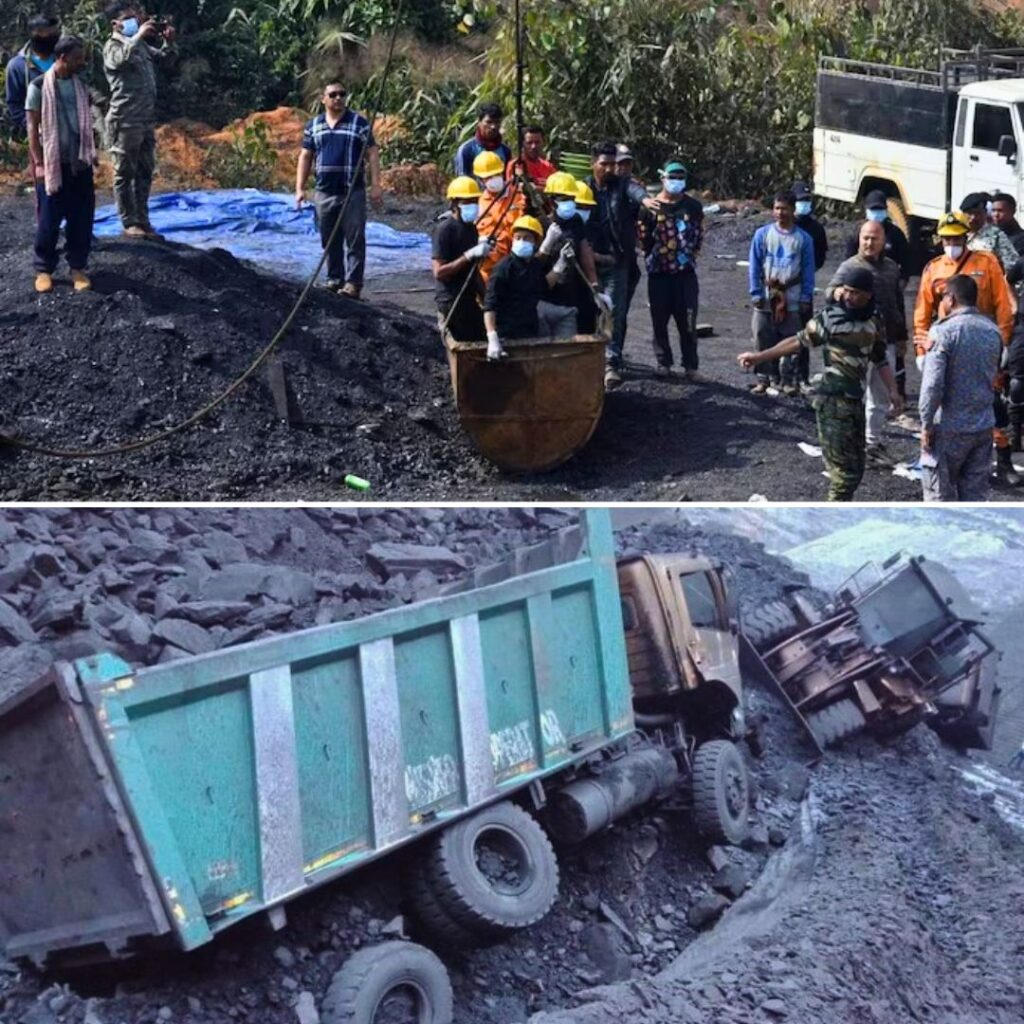On the night of October 5, 2025, a devastating fire broke out in the Neurosurgery Intensive Care Unit (ICU) at Jaipur’s government-run Sawai Man Singh (SMS) Hospital, claiming the lives of at least six critically ill patients. The fire, suspected to be caused by a short circuit in the ICU storeroom, engulfed the ward in thick smoke rapidly, trapping patients and hindering rescue efforts.
Eleven patients were admitted at the time, with six succumbing to the fire while others were critically injured. Families have accused hospital staff of abandoning patients during the blaze, allegations denied by officials who said rescue operations were swift.
The Rajasthan Chief Minister Bhajanlal Sharma has ordered a thorough investigation into the incident and assured support for the bereaved families and the injured.
The Tragedy and Its Immediate Aftermath
The fire erupted around 11:20 p.m. on October 5, inside the storage room adjacent to the Neurosurgery ICU on the second floor of the SMS Hospital trauma centre. According to hospital sources and the fire department, the suspected cause of the blaze was a short circuit amid stored items including medical consumables and paperwork that quickly caught fire.
The fire and toxic smoke spread rapidly through the ICU ward, which had 11 patients at the time, many of them in critical condition and unable to evacuate on their own.
Rescue efforts were intense but chaotic, involving hospital staff, police officers, fire brigade personnel, and even family members who assisted in evacuating patients. Some patients were carried out on beds to the ground floor, and others were rushed to nearby hospitals for emergency care. Despite these efforts, six patients tragically died from burns and smoke inhalation.
The fire also caused extensive damage, destroying ICU beds and essential medical equipment. Firefighters managed to extinguish the blaze after nearly two hours, with the hospital declaring a state of emergency and initiating treatment for the survivors.
Accusations of Negligence and Staff Conduct
In the aftermath, families of the victims voiced deep anguish and anger, accusing hospital personnel of negligence and abandonment. Many alleged that some staff fled the scene instead of aiding critically ill patients, worsening the tragedy. Relatives described harrowing conditions inside the ICU during the fire, highlighting the distress of patients trapped in smoke-filled rooms with limited assistance.
Conversely, hospital officials and authorities refuted these allegations, stating that hospital emergency protocols were activated promptly and that staff worked alongside rescue teams to evacuate patients as quickly as possible.
According to SMS Hospital Superintendent Dr Achal Sharma, despite the challenging conditions, the response was as swift and organised as circumstances allowed. Nevertheless, an inquiry has been ordered to investigate these claims thoroughly and hold accountable anyone found negligent.
Government Response and Probe Orders
The incident prompted an immediate response from Rajasthan’s political leadership. Chief Minister Bhajanlal Sharma visited the hospital site, expressing condolences to the families of those lost and reassuring the public of transparent investigation procedures.
He ordered a probe led by a committee from the Medical Education Department to examine the causes of the fire, the adequacy and functioning of fire safety measures, staff preparedness, and evacuation procedures.
The government has also pledged to provide medical and financial support to the injured patients and the families of the deceased. This tragedy has reignited demands from health experts and activists for stricter fire safety audits in all government hospitals, improved infrastructure, timely maintenance of electrical systems, and comprehensive training of hospital staff in emergency response.
Background: Safety Challenges in Public Hospitals
The incident at SMS Hospital raises critical questions about fire safety standards in India’s public health system. Reports indicate that many government hospitals, including SMS, operate in ageing infrastructure poorly equipped to handle emergencies such as fires. Previous inspections have flagged inadequate fire prevention measures, faulty wiring, insufficient safety drills, and lack of proper evacuation plans.
This tragedy also sheds light on the chronic underinvestment and resource constraints faced by state-run hospitals, often resulting in overcrowded wards and compromised patient safety. Experts argue that preventing such disasters will require systemic reforms including infrastructure modernisation, strict enforcement of safety norms, continuous staff education, and robust accountability mechanisms.
The Logical Indian’s Perspective
The loss of six vulnerable lives in a place meant to offer healing and care is a heartbreaking reminder of the human cost of systemic negligence. The Logical Indian believes that patient safety must be enshrined as a non-negotiable pillar of healthcare, especially in critical care units where lives hang in fragile balance. This incident underscores the urgent need for transparent investigations and accountability to prevent repeat tragedies.
Moreover, this moment demands a collective commitment-from policymakers, hospital administrations, healthcare workers, and citizens-to foster a culture of safety, empathy, and responsiveness within our hospitals. Constructive dialogue and cooperation can drive reforms that ensure hospitals are sanctuaries of hope, not sites of sorrow.
🚨 Tragedy in Jaipur: Fire breaks out in ICU of SMS Hospital Trauma Centre.
— gourav sharma (@SharmaGouravs34) October 6, 2025
🛏 11 patients admitted; 6 dead (2 women, 4 men), others rescued.
⚡ Short circuit suspected. Fire controlled, probe underway.#Jaipur #SMSHospital #Breaking #FireAccident pic.twitter.com/wePBGBomRk











